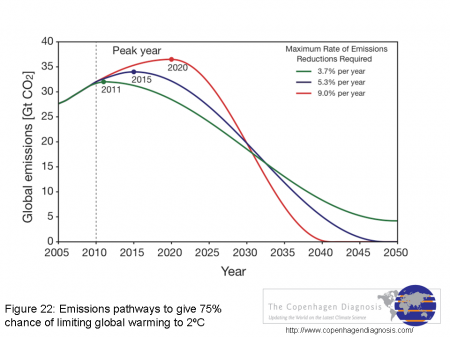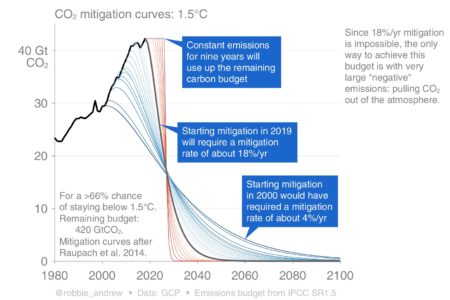Blair King (whose blog bio says he has an “Interdisciplinary PhD in Chemistry and Environmental Studies”) is one of the people who had sent a tweet arguing that only people who use few or no fossil fuels can call for decarbonization and who I linked to this rebuttal post. He subsequently wrote his own response to me. I appreciate the substantive quality of what he wrote, but I still disagree with his conclusions.
To begin with, he says:
The reason the charge of hypocrisy is used so often in this debate is because it represents a valid concern. We live in a world full of hypocrites who will say one thing in public and do another in the privacy of their own lives. The problem is that until you have personally tried to go without fossil fuels you can’t really understand how hard it really will be. So a hypocrite is apt to make claims that are not founded on an understanding of the scope of the challenge, usually that doing so will be relatively easy
Fair comment, but I don’t think I understate the cost, difficulty, or challenge of rebuilding of the global energy system, nor automatically assume people in the future will use as much energy as we do today. Saving the biosphere justifies major lifestyle changes.
He goes on to say: “[t]o suggest that we can make massive global political changes without anyone making individual changes represents magical thinking”. That’s not what I have been saying at all. My point is that it’s wrongheaded to argue that only people who don’t use oil can call for decarbonization and further that efforts at addressing climate change through voluntary individual action are hopeless. People will definitely need to make changes, but they won’t for the most part be voluntary and individual. People don’t individually decide what sort of power plants get built, where our raw materials come from, or how any part of our integrated, technological global society functions. A lot of those systems have actually been set up by larger entities like corporations and governments making choices, but so far that decision making doesn’t reflect a determination to control how much fossil fuel gets burned and thus how much climate change gets imposed on the world. Decarbonization requires large scale political change and the relevant criterion for evaluating our individual behaviour is whether it is promoting or impeding that transition.
Dr. King then goes on to talk about sea level, challenging my prior claim that there are “centuries of experience that the sea level is always at more or less the same height”. Oddly, he then includes a chart that directly supports my point. It shows sea level going back to 1880, and shifting from about 125 mm below the zero axis to about 50 mm above. Compared to what is being induced by us melting the Greenland and West Antarctic ice sheets, the variation he shows is trivial. As described in the sea level rise portion of the U of T divestment brief: “A 2009 Science article examined the relationship between atmospheric CO2 concentrations and ice sheet stability. The paper identifies how the last time global CO2 concentrations were at current levels, global temperatures were between 3 ˚C and 6 ˚C hotter and sea levels were ’25 to 40 meters higher than at present’.” Expected sea level rise resulting from business-as-usual fossil fuel use is of the order of 1 m to much more: well outside the scope of what anatomically modern humans have experienced, and certainly way beyond what our present-day seafront infrastructure was built for.
Dr. King doesn’t provide much of a response to my using David MacKay’s book as evidence that there is enough renewable and fission energy available to more than replace our current fossil fuel use. In the same paragraph, he argues that somehow the creation of hydrogen-powered airliners is a critical missing part of decarbonization. First, I don’t assume that people will or should be able to fly anywhere near as much as they currently do. Second, I make clear in my post that decarbonization is a progressive process that needs to begin with the fossil fuel use that’s easiest to eliminate before moving to the harder stuff. If you want to keep using them, planes and rockets need energy dense fuel so they’re both part of the hardest to shift portion of our emissions. I would be happy to see air travel become much rarer and more expensive, and accept that such a shift is probably a necessary part of our overall decarbonization effort.
On raw materials, Dr. King says:
Petrochemicals represent a treasure trove of stored chemical energy that simply cannot be replaced given our current scientific knowledge and energy systems.
I wasn’t saying that replacing fossil fuels will be easy. I have been consistent in saying it’s one of the greatest challenges humanity has ever faced and it’s far from clear whether we will manage it. That said, there is no basis for saying that fossil fuels are an irreplaceable raw material. If their precursors could be made by plants out of air and sunlight we can do the same thing: quite possibly at a smaller scale than today’s petrochemical-fed industries and at a higher cost, but again I accept that many things in a low carbon future will be rarer and more costly than they are now.
It might affect Dr. King emotionally to know that I have actually done a lot personally to reduce my fossil fuel dependence and contribution to climate change. I have structured my life so that I can do everything essential on foot: easily able to walk to work and to complete necessary errands. At times, I go weeks at a time without even taking public transit. I have never had a driver’s license or owned a car. I last flew in 2007 and the last time I visited my family and hometown was in 2009/10 by Greyhound, which we calculated would be substantially less greenhouse-gas intensive than flying. I live in a single room on a floor shared by three people. I don’t bring this stuff up in response to hypocrisy allegations because I think the whole ‘only someone who doesn’t use fossil fuels can or should call for decarbonization’ is logically unsound. It’s perhaps worth mentioning here in response to Dr. King’s argument that only people who have chosen to greatly reduce their footprint can know what sort of future they are calling for. I think I have such an idea and, if the alternative is imposing the kind of massive threat that we currently are on people in the future and non-human nature, I think those sacrifices and more are not only acceptable but mandatory.
The emotional tone of Dr. Blair’s post is a bit exasperating in that he seems to think that his level of contempt toward the caricature he has developed of me is itself somehow an argument. He and his supporters have gotten into a big huff because I blocked him on twitter. This easily bleeds into the utterly indefensible argument that anyone who you care to talk to has the obligation to listen to you, and to do so on a platform of your choice (brilliantly lampooned by XKCD). As most people now seem to accept, twitter is a pretty awful place made marginally more tolerable by the ability to block people. I routinely encounter climate change deniers and twitter users who don’t even try to respond to substantive arguments but who simply hurl abuse. If I didn’t block them, they would dominate my timeline. Furthermore, I think I have every right to block people whose tweets I don’t want to see: a category that still includes Dr. King and the other twitter users who took a personally interest in the matter of this banning who followed on after him in arguing that blocking him was very, very wrong.
Another basic error in Dr. King’s post shows in the title: “When political scientists do environmental science the results are not always pretty”. The question of what we ought to do in response to climate change certainly requires science to answer. We need to know how much warming will result from how much coal, oil, and gas burning and what consequence a given level of warming will have for humanity and the rest of nature. Actually deciding what to do, however, goes well beyond environmental science to incorporate politics, economics, and most fundamentally ethics. Condemning people in the future for thousands of years to live in a world which we destabilized and degraded through our selfish use of fossil fuels is a profoundly immoral choice. If we’re not going to make it, we need to stop producing new fossil fuel production, transport, export, and use architecture in rich and highly polluting places like Canada and then play a determined and good faith role in spreading climate-safe energy technologies globally. That’s not the “Chinese Communist Party and Russia’s Vladimir Putin” view, as Dr. Blair rather childishly alleges. That’s survival politics in the 21st century. The alternative is not to keep the cozy fossil-dependent world we have now, but see how rich and prosperous we can remain as devastating global change is making large parts of the planet uninhabitable and huge numbers of people start fighting over what’s left.



